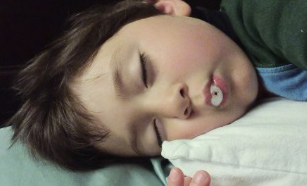COVID-19 News: Pediatricians In Japan Warn That Omicron Variants Are Causing High Number Of Seizures And Unconsciousness In Infected Children!
Nikhil Prasad Fact checked by:Thailand Medical News Team Nov 16, 2023 1 year, 5 months, 2 days, 4 hours, 49 minutes ago
COVID-19 News: The relentless journey of the coronavirus disease (COVID-19) pandemic has taken an unexpected turn with the emergence of the severe acute respiratory syndrome coronavirus 2 (SARS-CoV-2) omicron variant. Initially, children were perceived to experience milder symptoms than their adult counterparts, providing a semblance of relief in the face of the global health crisis. However, recent developments from pediatricians in Japan sound an alarming note: the omicron variant is causing a surge in seizures and unconsciousness among infected children.
 Objective and Study Design
Objective and Study Design
A groundbreaking study conducted by the Division of Pediatrics at Tokyo Metropolitan Toshima Hospital, the Department of Pediatrics at Juntendo University, and the National Center of Infectious Disease in Tokyo sought to unravel the clinical features of COVID-19 in children with SARS-CoV-2 omicron variants. The objective was clear: to comprehensively understand the impact of this variant on the pediatric population.
The study covered in this
COVID-19 News report, spanned an extensive period, from January 2020 to October 2022, including 214 children with SARS-CoV-2 non-omicron variants and 557 children with omicron variants. The comparison of clinical features revealed stark differences, particularly in the prevalence of symptoms such as fever, sore throat, nausea/vomiting, seizures, and disorders of consciousness.
Results and Key Findings
In the cohort infected with the omicron variant, a concerning revelation emerged - a notable increase in the occurrence of seizures and unconsciousness among the pediatric patients. While the non-omicron variant group reported only one case with seizures and/or unconsciousness, a staggering 92 children in the omicron variant group experienced these distressing symptoms.
Further classification of these cases revealed a spectrum of neurological manifestations. Among the 92 patients, 46% were diagnosed with simple febrile seizures, 25% with complex febrile seizures, 11% with status epilepticus, and 2% with encephalopathy. What was particularly striking was the age distribution of these cases, extending beyond the typical range for febrile seizures. The mean age of 4.0 ± 3.0 years indicated a broader impact, reminiscent of febrile seizures associated with influenza.
Discussion and Implications
The study shed light on the evolving landscape of the SARS-CoV-2 pandemic, segmented into the non-omicron period (24 months) and the omicron period (10 months). Despite the shorter duration of the omicron period, the number of children with COVID-19 surpassed that of the non-omicron period. This aligns with previous research suggesting a higher prevalence of omicron variants among children, a phenomenon reflected in the lower mean age of the omicron group.
Of paramount concern was the significant increase in children experiencing seizures and unconsciousness during the omicron period. The study underscored the urgency of recognizing this surge, given that only one patient in the non-omicron group exhibited such sy
mptoms compared to 92 in the omicron group.
The age distribution of affected children raised eyebrows, as febrile seizures are traditionally expected between the ages of 6 months and 6 years. However, the wider age range observed in this study signaled a departure from conventional expectations, reminiscent of the impact seen with influenza.
The discussion delved into the evolving nature of diagnostic thresholds during the pandemic, acknowledging potential selection biases in the study sample. The lack of information regarding vaccination status, though a limitation, did not diminish the significance of the findings. Even in the post-vaccination era, a larger number of seizures in omicron-infected children highlighted the severity of the variant's impact.
Conclusion and Future Directions
In conclusion, this in-depth study has unraveled a concerning association between SARS-CoV-2 omicron variants and a surge in seizures and unconsciousness among children with COVID-19. The unique age distribution of affected children and the higher prevalence of these symptoms during the omicron period underscore the urgent need for further research.
As the world grapples with evolving variants of the virus, this study serves as a critical piece of the puzzle in understanding the nuanced impact of SARS-CoV-2 on pediatric populations. The implications for clinical practice are profound, necessitating heightened awareness among healthcare professionals. The call for further studies, involving multiple institutions and larger sample sizes, resonates as the scientific community strives to stay ahead of the ever-evolving virus and its impact on the vulnerable pediatric demographic. This study stands as a beacon, illuminating the urgent need for vigilance and continued research in the face of a shifting viral landscape.
Th study findings were published in the peer reviewed journal: Frontiers in Pediatrics.
https://www.frontiersin.org/articles/10.3389/fped.2023.1273464/full
For the latest
COVID-19 News, keep on logging to Thailand Medical News.
